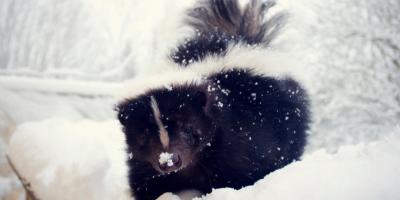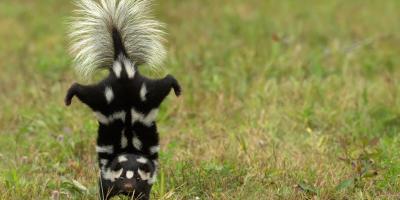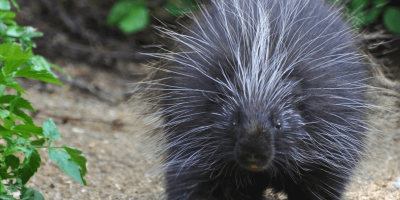Squirrels Aren't the Only Bird Seed Bandits

Believe it or not, we have officially embarked on National Bird Feeding Month. Although they are the intended recipient, often birds aren’t the only creatures who benefit. A variety of rodents -- squirrels are a common culprit -- love to take advantage of well-stocked bird feeders.
So, how can you feed the birds and celebrate National Bird Feeding Month without accidentally inviting unwanted pests onto your property?
We’ve got a few ideas…
A February Feast: National Bird Feeding Month
February officially became National Bird Feeding Month by formal resolution entered into the Congressional Record in 1994. The aim of National Bird Feeding Month is to educate about wild bird feeding. According to the resolution, at that time an estimated one-third of American households participated in feeding wild birds on their properties.
In doing so, however, they often feed other critters, too. Common backyard rodents like squirrels love to get their fill from bird feeders. And what’s good for squirrels is certainly good for rats and mice.
If these visits to your bird feeder are left unchecked, you could wind up with a proper pest problem. Given enough time to raid your bird feeders, these rodents might also uncover entry points into your home -- warm places to sleep and even shelter their young.
Does this mean you need to stop feeding the birds?
Of course not!
Simply practice some safe and smart bird feeding strategies in order to keep unwanted rodents away from the menu.
Feed the Birds, Free of Rodents
Common sense goes a long way when it comes to feeding the birds without attracting other, unwanted diners. While there are dozens of products on the market, from “rodent proof” feeders to “specially formulated” bird food that promise to help, we’ve narrowed down three key phrases to support your best bird feeding:
Location, Location, Location
Obviously, one of the main points of bird feeding is to observe various bird species up close while they eat. See if it’s possible to locate areas around your property where you can still do this while keeping the feeders further away from your house. That way, any rodents looking for a snack will do so well away from any entry points to your residence.
Sensible Storage
Keep your bird food supplies safely secured in a lidded container rather than their original packaging, which rodents can easily tear into. When it’s time to refill a feeder, do so at the feeder site, rather than in your garage or driveway. Similar to feeder placement, this will also keep rodents from approaching your property, attracted by trails of spilled seeds.
Clean Scene
Since spills do happen, it’s crucial that you sweep up any bird food that has fallen out of the feeder or storage container. Some people even clean under the actual feeders in order to remove easy food sources for rodents.
As part of prudent home maintenance, routinely check your house for any signs of cracks or weak structural supports that might make easy access points for rodents. Shoring up the walls of your property is a strong step to feeding the birds… and nothing else.
But, even the best efforts can fall to waste when it comes to residential pest problems: If your home hosts squirrels and rodents, contact our team of pest management professionals to find the best pest control solution for you… and your fine feathered friends.



